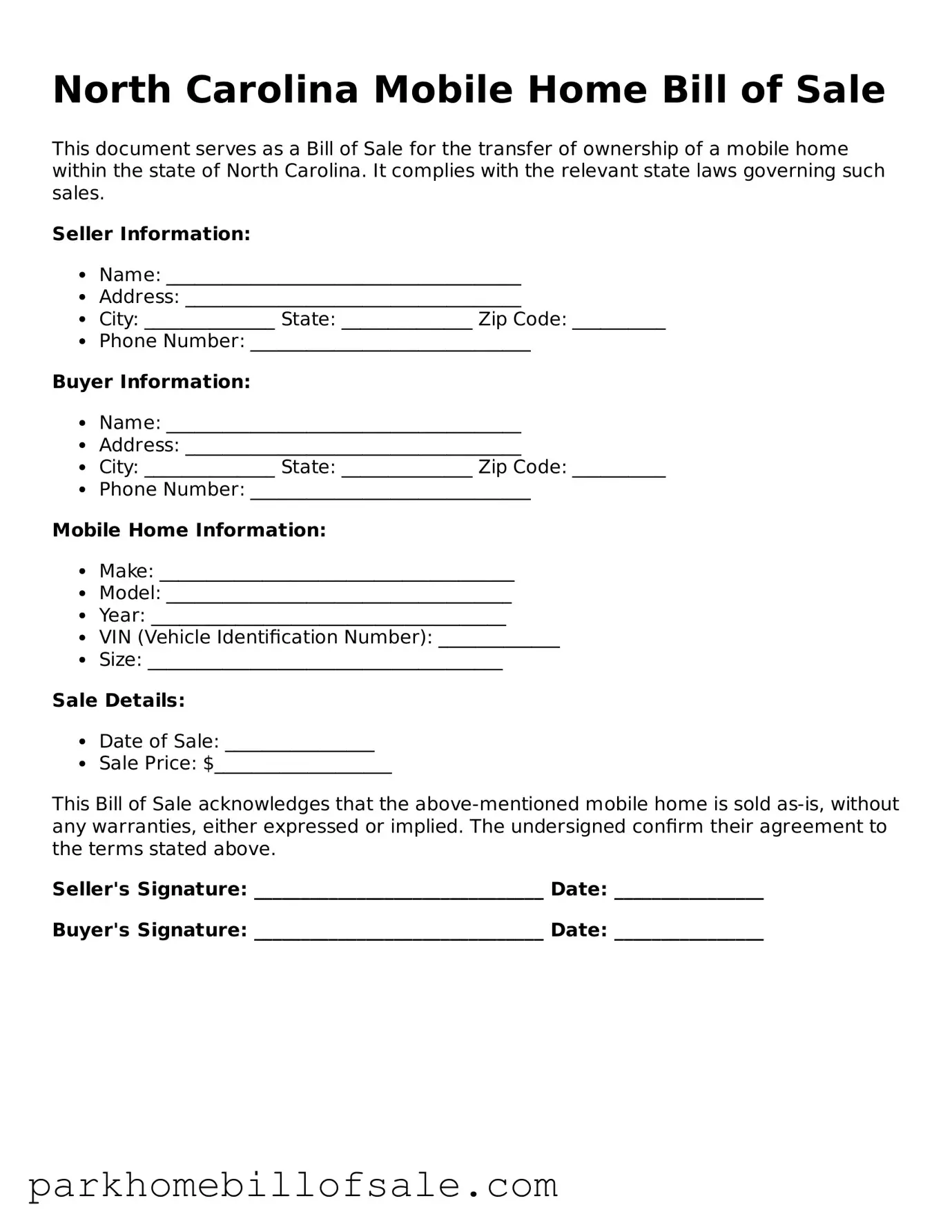Documents used along the form
When purchasing or selling a mobile home in North Carolina, it's essential to have the right documentation in place to ensure a smooth transaction. In addition to the Mobile Home Bill of Sale, several other forms and documents can help protect both parties involved. Below is a list of commonly used documents that complement the Mobile Home Bill of Sale.
- Title Transfer Document: This document officially transfers ownership of the mobile home from the seller to the buyer. It is crucial for registering the new owner with the state.
- Affidavit of Ownership: This sworn statement is often used to confirm that the seller is the rightful owner of the mobile home and has the authority to sell it.
- Sales Agreement: A detailed contract outlining the terms of the sale, including the purchase price, payment methods, and any conditions or contingencies that must be met.
- Inspection Report: A document that provides a thorough assessment of the mobile home’s condition. This report can help the buyer understand any potential issues before finalizing the sale.
- Bill of Sale for Personal Property: If the sale includes personal property within the mobile home, such as appliances or furniture, this document outlines what is included in the transaction.
- Loan Agreement: If financing is involved, this document details the terms of the loan, including interest rates, repayment schedules, and any collateral agreements.
- Insurance Policy: Proof of insurance coverage for the mobile home is often required by lenders. This document ensures that the property is protected against potential damages.
Having these documents ready can simplify the buying or selling process and provide peace of mind. Each form serves a specific purpose and helps to clarify the responsibilities and rights of both the buyer and the seller. Always ensure that all documents are completed accurately to avoid future complications.
